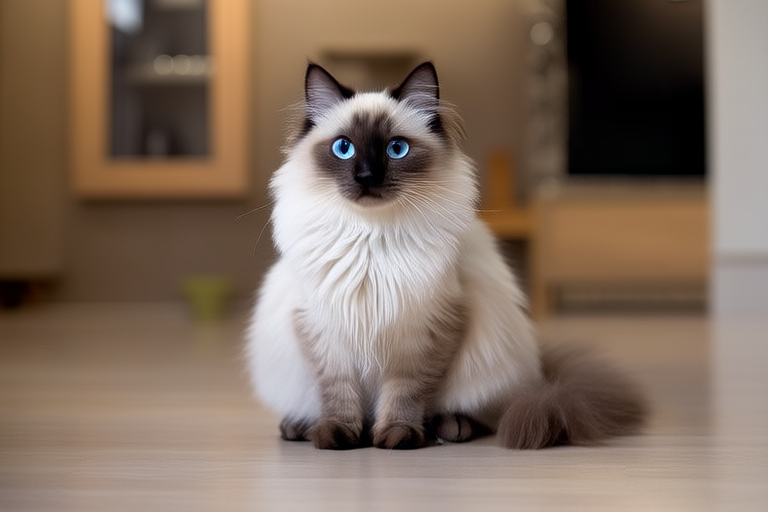How to Care for Your Maine Coon: Expert Tips for a Happy Pet
Welcome to your comprehensive guide on how to care for your Maine Coon! Known for their gentle nature, intelligence, and striking appearance, these cats make wonderful companions. In this article, we’ll explore various aspects of Maine Coon care, from basic needs to creating a stimulating environment. Whether you’re a new owner or have been living with a Maine Coon for years, there’s something here for everyone.
Basic Care Needs
Maine Coons are large, active cats with unique care requirements. They need a balanced diet, regular exercise, and a clean, comfortable living space. Their spacious litter boxes should be cleaned daily, and they thrive in environments where they can explore and play. Provide them with scratching posts, toys, and perches at different heights to encourage climbing and stretching. Maine Coons also enjoy water, so consider adding a pet fountain or shallow dish to their area.
Grooming Tips Specific to Their Coat and Health
Maine Coons have thick, luxurious coats that require regular grooming. Their semi-longhair fur is prone to matting, especially during shedding seasons. Use a slicker brush twice weekly to prevent tangles and remove loose hair. Bathing is usually unnecessary unless they get into something particularly messy. Instead, focus on keeping their ears clean and nails trimmed, as overgrown claws can lead to discomfort or injury.
Health-wise, Maine Coons are generally healthy but can be prone to certain conditions like hip dysplasia, heart disease, and polycystic kidney disease. Regular veterinary check-ups are crucial for early detection and management of these issues. Keep vaccinations up-to-date and monitor for any unusual symptoms such as lethargy, loss of appetite, or changes in behavior.
Dietary Requirements
A balanced diet is essential for maintaining your Maine Coon’s health. Choose high-quality cat food that meets their nutritional needs, including protein, fats, carbohydrates, vitamins, and minerals. Avoid foods containing artificial preservatives or fillers. Maine Coons tend to overeat, so portion control is important. Consult your veterinarian about appropriate feeding schedules and quantities based on your cat’s age, weight, and activity level.
Exercise Needs
Despite their size, Maine Coons are very playful and energetic. They enjoy interactive toys, laser pointers, and puzzle feeders that challenge their minds. Daily play sessions help keep them physically fit and mentally stimulated. Encourage outdoor activities if your yard is secure and free from hazards like toxic plants or wildlife. Always supervise them when outside to ensure their safety.
Socialization Techniques
Maine Coons are known for their friendly and sociable personalities. They often form strong bonds with their families and enjoy interacting with people. Early socialization helps them become well-adjusted pets who are comfortable around guests and other animals. Introduce them gradually to new experiences, sounds, and sights. Positive reinforcement training methods can be used to teach them commands and tricks, enhancing their interaction skills.
Common Health Issues
While Maine Coons are generally healthy, they may face some genetic predispositions:
- Hip Dysplasia: This condition affects the hip joint and can cause pain and mobility issues. Symptoms include limping, difficulty standing, or reluctance to jump.
- Heart Disease: Maine Coons are susceptible to hypertrophic cardiomyopathy (HCM), which thickens the heart muscle and impairs its function. Regular vet visits can help detect this early.
- Polycystic Kidney Disease (PKD): An inherited disorder causing cysts to develop in the kidneys, potentially leading to kidney failure. Genetic testing can identify carriers.
Consult your veterinarian about preventive measures and treatment options for these conditions.
Advice on Creating a Stimulating Environment
To keep your Maine Coon happy and engaged, provide a stimulating environment filled with opportunities for exploration and mental engagement. Install cat trees, window perches, and tunnels that allow them to climb and hide. Rotate toys regularly to maintain interest and introduce new ones occasionally. Interactive feeding devices can also add excitement to mealtime while encouraging problem-solving.
Consider setting aside dedicated playtime each day to bond with your cat. This not only strengthens your relationship but also provides much-needed physical activity. Engage in games like fetch or hide-and-seek to stimulate both body and mind.
Conclusion
Caring for a Maine Coon involves meeting their unique needs while fostering a loving, enriching home environment. By understanding their dietary preferences, exercise requirements, and social tendencies, you can ensure your feline friend leads a long, healthy, and joyful life. Remember, every Maine Coon is an individual with distinct personality traits, so tailor your approach accordingly. With proper care and attention, you’ll have a loyal companion by your side for many years to come.
